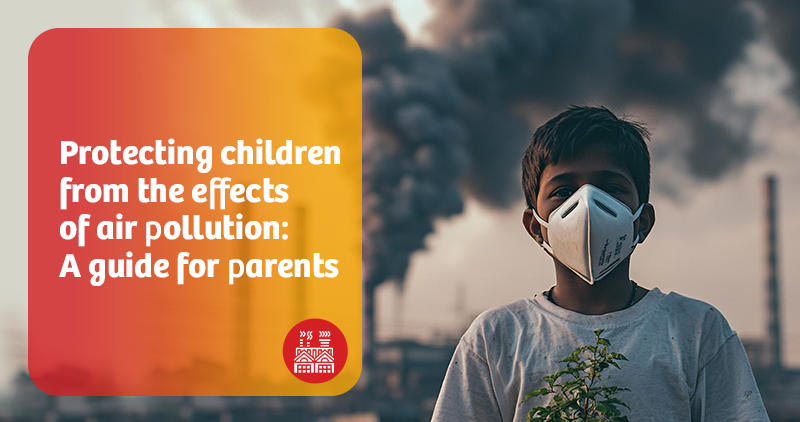

By Dr Snehal Patel
Consultant Paediatrician & Neonatologist
July 03, 2025
Air pollution is often an invisible threat that silently affects our health, especially children. While the dirty smog, vehicle fumes, and industrial emissions may be more noticeable in some areas, even rural and seemingly 'clean' environments are not immune to air pollutants. Children, whose lungs and immune systems are still developing, are especially vulnerable to air pollution, which can lead to long-lasting and even irreversible health conditions in the future.
At KD Hospital, Ahmedabad, we recognise the critical role that clean air plays in your child's development. As a centre of excellence in paediatric care and preventive medicine, we aim to empower parents with knowledge and practical tools to protect their children from the harmful effects of air pollution.
Air pollution is a mix of harmful substances in the air we breathe, which may include:
Children are not just small adults. Their vulnerability to pollution stems from:
1. Respiratory disorders
Prolonged exposure to polluted air is linked to
2. Impaired lung development
Studies show children growing up in polluted environments often have reduced lung capacity compared to those in cleaner areas.
3. Neurological impact
Recent research suggests links between air pollution and
4. Increased risk of allergies
Air pollution can compromise the immune system, increasing children's susceptibility to allergies and skin conditions such as eczema.
5. Long-term cardiovascular risk
Even early-life exposure to pollution can increase the risk of hypertension and cardiovascular disease in adulthood.
1. Time outdoor activities wisely
Pollution levels are usually highest
2. Create a safe indoor environment
3. Use face masks when necessary
For children over the age of 2, kid-friendly N95 masks can significantly reduce the inhalation of harmful PM2.5 particles. However, ensure masks fit well and are not uncomfortable.
4. Promote a healthy diet
Antioxidant-rich foods help combat oxidative stress caused by pollutants Include
KD Hospital's department of paediatrics also offers customised diet plans for children prone to respiratory or allergic issues.
5. Keep vaccinations up-to-date
Polluted air can increase vulnerability to infections. Ensure your child is vaccinated against
6. Avoid pollution hotspots
Steer clear of
Even a few hundred meters away from high-traffic roads can significantly reduce exposure to pollutants.
7. Educate and empower children
Teach children the importance of
At KD Hospital, we take a proactive approach to children's respiratory and overall health with
Seek medical attention if your child shows
KD Hospital's 24/7 paediatric emergency unit is equipped to handle respiratory distress and pollution-related complications swiftly and safely.
While it's vital to protect children, long-term change comes from collective action. Parents can
Best neonatology and paediatric hospital in Gujarat.
Air pollution may be an unavoidable reality today, but with informed decisions, timely action, and expert support, you can shield your child from many of its harmful effects. At KD Hospital, we believe that every child deserves the chance to grow up healthy, happy, and strong, starting with the air they breathe.
Because your child's health is not just a responsibility—it's a promise.